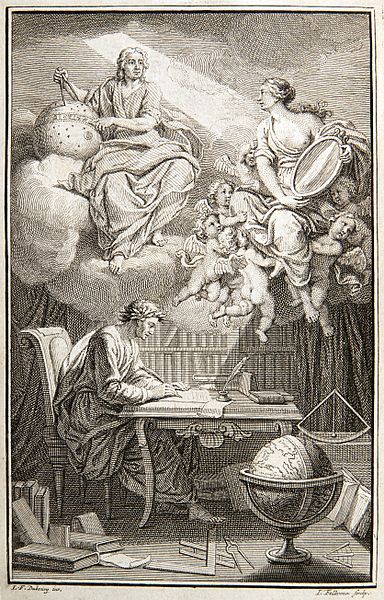François-Jean de la Barre
François-Jean Lefebvre de la Barre was a young French nobleman. He was tortured and beheaded before his body was burnt on a pyre along with Voltaire's Philosophical Dictionary nailed to his torso. La Barre is often said to have been executed for not saluting a Catholic religious procession, though other charges of a similar nature were laid against him.
La Barre Monument at Abbeville
Second statue of the Chevalier de la Barre, on Montmartre
Rue du Chevalier de La Barre, next to the Sacré-Cœur Basilica of Paris on the butte Montmartre
Monument to the Chevalier de la Barre - Paris, 18th arr. at Sacré-Cœur de Montmartre, circa 1906
François-Marie Arouet, known by his nom de plume M. de Voltaire, was a French Enlightenment writer, philosopher (philosophe), satirist, and historian. Famous for his wit and his criticism of Christianity and of slavery, Voltaire was an advocate of freedom of speech, freedom of religion, and separation of church and state.
Portrait c. 1720s, the Musée Carnavalet
Voltaire was imprisoned in the Bastille from 16 May 1717 to 15 April 1718 in a windowless cell with ten-foot-thick walls.
In the frontispiece to Voltaire's book on Newton's philosophy, Émilie du Châtelet appears as Voltaire's muse, reflecting Newton's heavenly insights down to Voltaire.
Pastel by Maurice Quentin de La Tour, 1735








